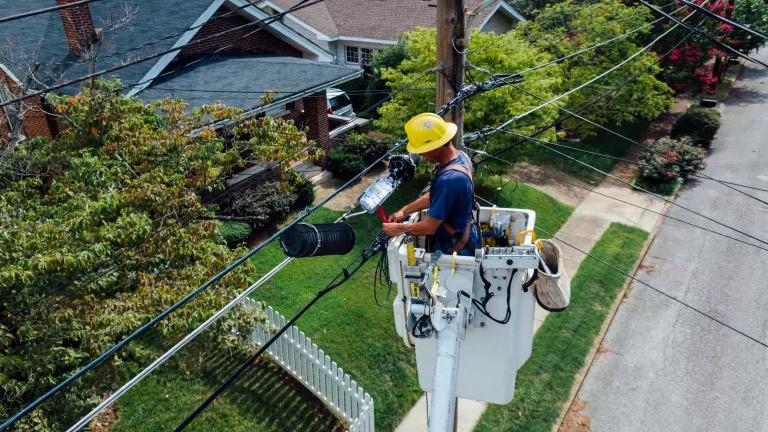Ohio’s House Bill 6 and “Revenue Decoupling”
In the aftermath of a hotly contested legislative campaign led by FirstEnergy, Ohio’s now notorious HB 6 has occasioned numerous corruption charges, well-justified objections from consumer and environmental interests, and at least one whopper of a red herring involving “revenue decoupling.” This longstanding utility regulatory reform is aimed at accelerating energy efficiency progress, by preventing electricity and gas sales volumes from affecting utilities’ financial health—but that’s far from what happened here. While a provision mischaracterized as “revenue decoupling” got little attention at the time it was added to House Bill 6, it has now become a focal point of efforts to repeal the legislation.
Without revenue decoupling, utilities have a strong incentive to promote potentially wasteful and costly energy consumption increases, and a strong disincentive to advance energy efficiency—undermining society’s economic and environmental interests. A recent review of nationwide progress is here.
HB 6 contains what some have called a “decoupling” provision, but this section of the law passed last year had absolutely nothing to do with energy efficiency (which HB 6 effectively extinguished as a priority for all the state’s major utilities). Instead, that section awarded FirstEnergy a legal entitlement to unconscionably inflated annual revenues, usurping the authority of the state’s utility regulators. That revenue guarantee should go straight into the legislative dustbin, along with the rest of HB 6.
This kind of chicanery has nothing to do with “revenue decoupling,” which uses small annual rate adjustments (both up and down) to ensure that fluctuations in sales don’t affect utilities’ ability to recover costs to operate their business as authorized by their regulators, following an open public process.
Two-thirds of states across the country (32 plus DC) now have revenue decoupling for at least one electric or natural gas utility, covering a total of 109 utilities. Abundant evidence supports the vital importance of this business model reform for effective utility engagement on both cost-effective energy efficiency and small-scale renewable energy development. Without it, utilities’ financial interests would be at odds with customers’ vital stake in America’s ongoing clean energy transition, which hinges on a host of ways to use energy more efficiently and generate it from renewable sources.
But HB 6’s abandonment of energy efficiency and inflated revenue guarantee for FirstEnergy were unfair to its customers and unworthy of classification as “revenue decoupling.”



